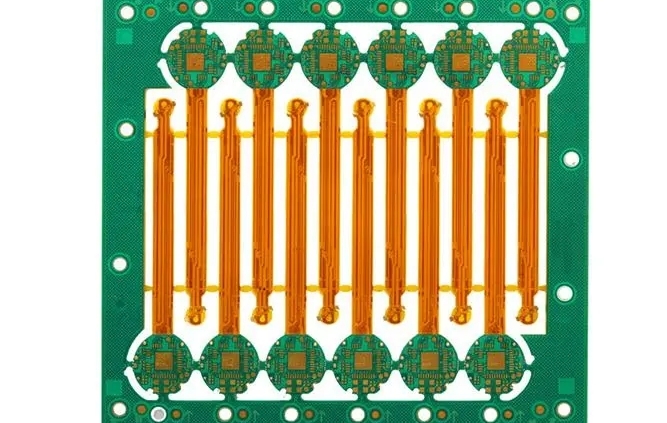Advantages and disadvantages of Rigid-Flex PCB
Rigid-Flex PCB is a board that combines a flexible circuit with a rigid board. Its advantages and disadvantages are as follows: advantage:
- Flexible circuits allow more flexible circuit design, and high-density wiring can achieve smaller size and lighter weight.
- Compared with rigid boards, Rigid-Flex PCB has good vibration resistance, tensile strength and bending resistance, and is suitable for high-demand industrial fields.
- The assembly cost is relatively low, which can reduce the volume and weight of traditional rigid boards, while improving the design flexibility and reliability of electronic products.
shortcoming: 1. The manufacturing process of Rigid-Flex PCB is complicated and requires advanced production equipment, resulting in high cost.
- Rigid-Flex PCBs may have lower reliability and durability compared to rigid boards.
- For circuits containing high-frequency signals, the performance of flexible circuits may not be as good as rigid boards.
In addition, Rigid-Flex PCB has some design considerations that must be considered: 1. Design for flexibility: Rigid-flex PCBs must be designed to accommodate various bending and folding requirements of the final product. The flexible portion of the board should be located where bending will not damage sensitive components.
- Component Placement: Component placement on a Rigid-Flex PCB is critical for optimal signal integrity and reliability. Components should not be placed on the flexible part of the board where they could be damaged when bent or folded.
- Material selection: Rigid-Flex PCB material selection must take into account the required flexibility, durability and electrical performance. These materials must also be able to withstand the harsh environmental conditions of the final product.
- Thermal management: Rigid-Flex PCB’s high-density circuit design is difficult to effectively dissipate heat. Thermal management must be a key consideration in the design process to prevent overheating and damage to boards and components.
Overall, Rigid-Flex PCB is a versatile and reliable PCB technology that offers many advantages over traditional rigid boards. However, its complexity and design considerations require expertise and experience to achieve a reliable and high-performance design.



